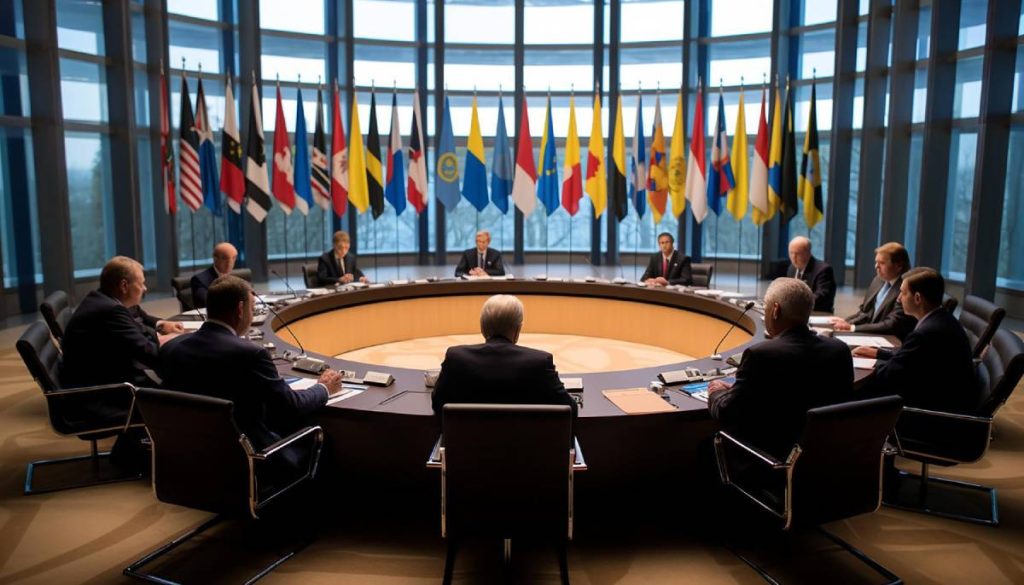Youth Movements Fueling Political Transformation
Across the globe, the rise of youth in political leadership is reshaping long-established systems of governance and power. In many countries, young people are no longer content with being passive participants in the democratic process. Instead, they are leading grassroots movements, launching campaigns, and winning elections. These emerging leaders are energized by frustration with political stagnation, economic inequality, and environmental degradation. Their involvement signals a larger cultural shift where age is no longer a barrier to legitimacy or impact. As young people demand accountability and innovation, they bring new energy and urgency into the political arena. The rise of youth is not only about visibility; it is about redefining priorities and restructuring governance around inclusion, sustainability, and digital fluency. This wave of participation is proving that meaningful change often comes from those who dare to challenge tradition and imagine new futures.
How Youth Leaders Are Reimagining Governance
The rise of youth in political leadership is not simply a demographic trend—it reflects a deep reimagining of how governments should function in the modern world. Young leaders are entering office with agendas rooted in transparency, technology, and equity. Their approach often contrasts sharply with that of older generations, focusing more on participatory decision-making and evidence-based policies. These leaders are bringing the concerns of marginalized communities, digital natives, and climate-conscious citizens to the forefront. They challenge the status quo not only by their age but by their commitment to reform. As a result, political institutions are being tested in new ways. The presence of youth in legislative bodies forces a reconsideration of what political experience really means and whether traditional hierarchies serve democratic principles. The rise of youth is a powerful force demanding not just seats at the table but the restructuring of the table itself.
Social Media and the Acceleration of Youth Power
One of the driving forces behind the rise of youth in political leadership is the strategic use of digital platforms. Social media has enabled young politicians to bypass traditional media and connect directly with constituents. Through real-time communication, viral campaigns, and digital organizing, youth leaders have built robust communities of support. These platforms provide tools for amplifying messages, mobilizing voters, and holding institutions accountable. The digital sphere is not just a tool—it is an ecosystem where political identities are formed and influence is measured. Young leaders who understand this environment are often more effective at shaping public discourse and framing key issues. As digital spaces become more influential in global politics, the role of youth as digital natives gives them a unique advantage in navigating and leveraging these networks. The rise of youth is thus closely intertwined with the digital transformation of political engagement.
Challenging Traditional Notions of Experience
The rise of youth in political leadership challenges longstanding assumptions about what qualifies someone to lead. Critics often point to age as a proxy for wisdom, arguing that leadership requires decades of experience. However, young leaders are increasingly proving that competence, clarity of vision, and adaptability can be more impactful than tenure. Their fresh perspectives offer innovative solutions to problems that have persisted under traditional governance. Many of these individuals have backgrounds in activism, technology, or social entrepreneurship, bringing valuable insights into how to navigate modern challenges. The world is changing rapidly, and the skills needed to govern effectively are evolving with it. The rise of youth compels societies to reconsider how they define readiness for leadership and whether conventional metrics are sufficient in an age of accelerated change.
Youth Leadership and Climate Justice Advocacy
One of the most defining features of the rise of youth in political leadership is the emphasis on climate justice. Young leaders have made environmental sustainability a central pillar of their platforms, demanding urgent action from both local and global institutions. They are not only advocating for greener policies but also framing climate change as a matter of human rights, social equity, and intergenerational responsibility. Their approach is holistic, connecting environmental issues to education, public health, and economic opportunity. The passion and clarity with which they articulate these connections have revitalized public discourse and pressured older leaders to respond. This commitment to sustainability reflects a broader generational shift toward long-term thinking and collective well-being. The rise of youth is giving voice to a planet in crisis and insisting on solutions that are inclusive, just, and forward-looking.
Barriers Facing Youth in Political Institutions
Despite the momentum behind the rise of youth in political leadership, young leaders still face considerable barriers. Institutional resistance, limited access to funding, and deeply ingrained ageism make it difficult for youth to gain political traction. Many political systems are designed in ways that favor incumbents and disadvantage newcomers, especially those without established networks or resources. Furthermore, media portrayals often trivialize young leaders, focusing on their age rather than their policies or accomplishments. Overcoming these challenges requires not only resilience but also support from civil society, educational institutions, and reform-minded policymakers. The fight for representation is far from over, and progress is uneven across different countries and political cultures. However, the very act of overcoming these barriers reinforces the legitimacy and determination of young leaders. The rise of youth continues to push the boundaries of who gets to participate in shaping the future.
The Global Impact of Youth-Led Political Change
The rise of youth in political leadership is not confined to any one nation or region. It is a global phenomenon reshaping how democracy functions and what it delivers. From Africa to Europe, Asia to the Americas, young leaders are stepping into positions of influence and driving systemic change. Their global presence is facilitating cross-border collaboration on shared issues such as climate change, digital freedom, and human rights. This new wave of leadership is also transforming global forums, where youth voices are no longer marginal but central. As these leaders form alliances and build transnational networks, they are crafting a new kind of internationalism—one rooted in empathy, inclusion, and solidarity. The rise of youth is not just altering national politics but creating a more interconnected and responsive global political order.
Conclusion
The rise of youth in political leadership marks one of the most significant democratic transformations of the 21st century. It signals not only a change in who leads but also in how leadership is defined, communicated, and exercised. With fresh ideas, bold vision, and digital fluency, young leaders are challenging the status quo and demanding a more inclusive, sustainable, and transparent future. As they navigate institutional barriers and global crises, their resilience and innovation continue to inspire new generations. The future of politics is already here, and it is being shaped by the determination and leadership of youth.



